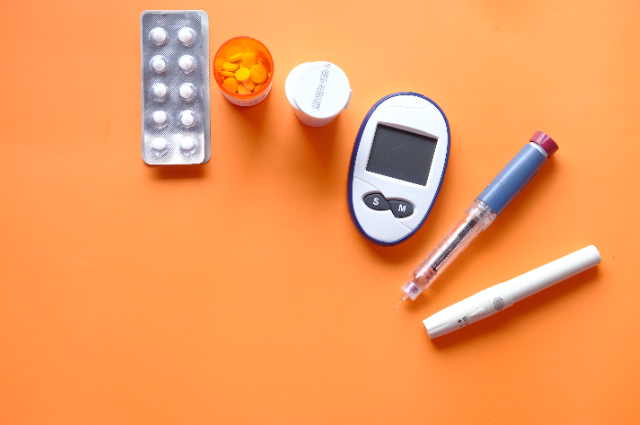
Photo by Towfiqu barbhuiya on Unsplash
Introduction:
Diabetes, a chronic condition affecting millions of people worldwide, requires lifelong management to prevent complications and maintain overall health. While there is no cure for diabetes, research and evidence suggest that certain lifestyle changes can significantly improve blood sugar control and potentially lead to diabetes reversal. In this article, we will explore the concept of diabetes reversal, the factors that contribute to its success, and practical steps individuals can take to empower themselves on their journey toward optimal health.
Understanding Diabetes Reversal:
Diabetes reversal refers to the achievement and maintenance of normal blood sugar levels without the need for diabetes medications. While it may not be feasible for everyone, numerous studies have demonstrated that substantial long-term weight loss, dietary modifications, regular exercise, and stress management can lead to significant improvements in blood sugar control and potentially reverse the disease.
Factors Contributing to Diabetes Reversal:
- Weight Loss: Excess body weight, particularly abdominal fat, significantly increases insulin resistance. Shedding excess pounds through a combination of calorie restriction, a balanced diet, and regular physical activity can greatly improve blood sugar control.
- Diet Modifications: Making healthier food choices is crucial for diabetes management. Emphasizing whole, unprocessed foods, reducing carbohydrate intake, and increasing consumption of lean proteins, fiber-rich fruits and vegetables, and good fats can help regulate blood sugar levels.
- Regular Exercise: Engaging in regular physical activity has numerous benefits for those with diabetes. Exercise helps improve insulin sensitivity, aids in weight loss, lowers blood sugar levels, and contributes to overall cardiovascular health.
- Stress Management: Chronic stress affects blood sugar control by increasing insulin resistance. Implementing stress reduction techniques such as mindfulness, yoga, deep breathing exercises, and adequate sleep can positively impact blood sugar levels and overall well-being.
Steps Towards Diabetes Reversal:
- Consult with a Healthcare Professional: Before embarking on any lifestyle changes, it is crucial to consult with a healthcare professional who can assess your condition, provide guidance, and monitor your progress.
- Develop a Personalized Plan: Work with a healthcare professional, such as a registered dietitian or certified diabetes educator, to develop a personalized plan that takes into account your specific needs, goals, and preferences.
- Focus on Balanced Nutrition: Prioritize whole, unprocessed foods, eliminate or minimize sugary beverages and refined carbohydrates, and incorporate portion control into your meal planning.
- Regular Physical Activity: Aim for a combination of aerobic exercises (such as walking, swimming, or cycling) and strength training exercises at least five days a week to achieve optimal blood sugar control.
- Stress Management: Practice stress reduction techniques, such as meditation, deep breathing exercises, yoga, or engaging in activities you enjoy, to help manage stress levels.
- Regular Monitoring: Regularly monitor your blood sugar levels and keep track of your progress to assess the impact of lifestyle changes. Work closely with your healthcare professional to adjust medication dosages, if necessary.
Conclusion:
While diabetes reversal may not be achievable for everyone, implementing significant lifestyle changes can greatly improve blood sugar control and overall health for individuals with diabetes. By prioritizing weight loss, adopting a balanced and nutritious diet, engaging in regular physical activity, and practicing stress management, individuals can empower themselves on their journey toward optimal health. Remember to consult with a healthcare professional to develop a personalized plan and monitor your progress, ensuring you receive the necessary support and guidance along the way.
